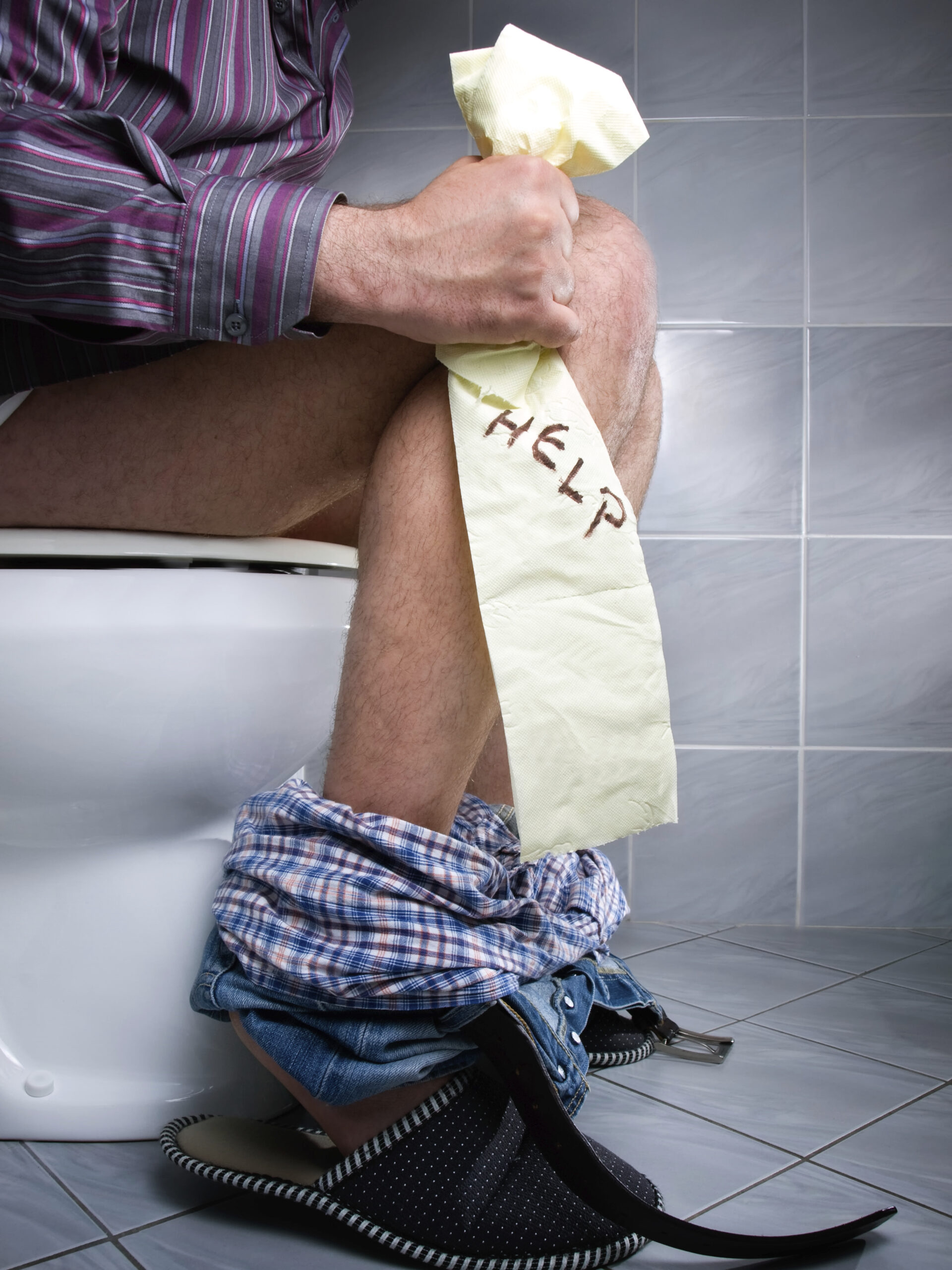Anal Itching
What causes anal itching
The most common cause of occasional anal itching (pruritus ani) is a fungus/yeast infection. Enlarged hemorrhoids cause the leakage of moisture, stool, and fungus. Repeated wiping, cleaning, scratching, and the use of harsh cleaners make the itching worse. It is frequently worse at night.
There are many other possible causes of rectal itching. It may be due to poor hygiene, leakage of stool and mucous, diarrhea, over cleaning, prolapsed hemorrhoids, inflamed internal hemorrhoids, skin tags, anal fissure, anal fistula, age related dry skin, Crohn’s disease, rectal warts, pinworms, rectal fistula, psoriasis, eczema, seborrhea, lichen planus, scabies, STDs, anal cancer, viral warts (HPV), sweating, erythrasma, contact dermatitis, neurodermatitis, amebiasis, or proctitis. Diabetes mellitus increases infections and itching and liver failure can cause itching. Anxiety or stress may cause itching.
Self-Help Measures
If the infection is mild you may be able to stop the itching with improved hygiene. Gently clean with soap and water. Dry with soft paper. Decrease the yeast in your diet by decreasing refined carbohydrates. Increase your fiber to have a more formed stool and less leakage.
The use of certain topical medications, scented products, or home remedies can lead to dermatitis and itching. Witch hazel or alcohol-based cleansing pads, harsh soap, formaldehyde-impregnated tissue, or harsh rubbing can all irritate the area. Antibiotics, colchicines, quinidine, mineral oil, and caffeine may increase leakage and irritation. Keep the area clean with warm water and dry the area gently. Scratching the area can break the skin and aggravate the infection. Avoid tight clothes and wear cotton underwear. Do not use fabric softener or harsh soaps. Try a different detergent on your clothing. Avoid foods or beverages that make the itching worse. Spicy foods may aggravate the itching. Control diarrhea with a high fiber diet. Oral antibiotics for other conditions can lead to a yeast infection.
A gentle tap-water enema may be needed to complete defecation. Some older individuals loose the muscle strength of the rectum and suffer from incontinence. This may also occur after trauma such as spinal injuries. Rectal intercourse should be avoided. STDs should be treated.
Self-help measures include stopping topical hemorrhoid creams, keeping the anus clean with mild unscented soap and water, blow drying the area after showering, apply Balneol lotion after bowel movements, use cotton balls to absorb moisture, avoiding diarrhea, use of a hand held Bidet, and Desitin or A & D ointment. Do not use products that contain cornstarch. You may try limiting alcohol, coffee, tea, carbonated beverages, tomatoes, chocolate, milk products, vitamin C or citrus juices. Recent changes in your diet may have to be adjusted. A yeast elimination diet may help. Try avoiding hot spices and peppers. Stress management is also important.
Topical hydrocortisone creams are occasionally helpful on a short term basis. Bacterial infections may require topical antibiotics. Super absorbent powder, Zeasorb, may be used for excessive sweating. Five percent Xylocaine ointment and antihistamines such as Benadryl may help stop the itching. These measures may only help the symptoms but not address the underlying problem.
Dry paper or excess washing may tear the skin and make it worse. Balneol pads or lotion may be used to help clean after bowel movements. It may take several days for the itching to improve. Using local hemorrhoid creams to numb the area may make the problem worse because they help keep the area moist or may cause a local skin inflammation from contact dermatitis.
Hydrocortisone is felt to be safe for anal itching by the FDA for OTC use. We do not recommend the use of steroids by themselves as it will only provide minimal temporary improvement and can make the underlying skin infection worse.
Over the counter anti-fungal creams are not approved by the FDA for rectal usage. They are only approved for athlete’s foot, ring worm, certain vaginal infections, or jock itch. The FDA and many physicians feel a proper diagnosis and treatment requires the examination by a qualified physician. It is important to be sure of the diagnosis and avoid missing other conditions that may cause itching and a rash.
If the anal itching is not better after one week, it is time to see a specialist. It is best to be safe and not worry as occasionally there is something more serious going on. Rapid improvement can be obtained to rectal itching with the proper prescription of antifungal creams and the rubber band ligation of internal hemorrhoids.
HCA Treatment for Anal Itching
In our office we band enlarged hemorrhoids and commonly use prescription anti-fungal creams for peri-anal skin infections. Hemorrhoid treatment is no longer to be feared or something to be embarrassed about. Get the help you need and deserve now.
The fungus or bacterial infection occurs because enlarged hemorrhoids open the rectum which leads to leakage of fluid. The area becomes difficult to keep dry and clean. Excess cleaning leads to traumatizing the skin. Our office banding treatment shrinks the hemorrhoids which allows for less leakage and better hygiene. The shrinking of the internal hemorrhoids allows for the rectum to close more efficiently. We will use topical Clotrimazole and 2% hydrocortisone, a prescription anti-fungal cream to help treat the itching, rash, and infection until the hemorrhoid banding can be completed. Mupirocin may be used if a bacterial infection is suspected. Our doctors can help you with custom compound medications. Occasionally, a skin culture is needed. The banding shrinks the hemorrhoids, which leads to less leakage and a cleaner dryer bottom.
Skin tags may trap stool particles and make proper hygiene difficult. They can be removed under local anesthesia. Banding cannot be done on external hemorrhoids or tags because of the large number of painful nerves on the skin of the rectum.
Buttock folliculitis is a common skin condition that looks like multiple red pimples on the butt cheeks. It is made worse by sitting, hot damp weather, tight underwear, or exposure to bacteria such as found in a poorly maintained hot tub. Minor itching and redness will usually respond to over the counter anti-bacterial washes such as Benzoyl Peroxide or Chlorhexidine. More serious infections will require prescription antibiotics such as Doxycycline or topical Clindamycin.
Rectal itching is a symptom, and it is important to find and treat the underlying condition.
Skin Irritation
Since the skin around the anus is exceptionally sensitive, it is very easy to irritate this area. Often dyes and scents in soap and toilet paper are the primary culprits of anal itching. A common problem with this type of irritation is that overuse in an effort to clean the anal area lead to increased friction and subsequent discomfort.
Digestive Problems
Recurring diarrhea and constipation can aggravate the skin around the anus, as both produce increased strain on the pelvic area, and in some cases, the use of additional toilet paper and soap for hygiene. Fecal leakage will contribute to anal itching.
Should your symptoms persist
Anal itching is most likely indicative of a greater problem such as a hemorrhoid or anal Fissure.
At HCA we only use disposable ligation systems. Dr. Goldman introduced disposable banding to the Southeastern United States in 2006. Dr. Alan Goldman is the Medical Director of Hemorrhoid Centers of America. At HCA we have helped thousands of patients avoid surgery and get the relief they deserve. We will start you on our special hemorrhoid compounds as needed for immediate relief and help you get rid of your hemorrhoids with our ligation system.

About 1 in 20 Americans have hemorrhoids. You are not alone.


